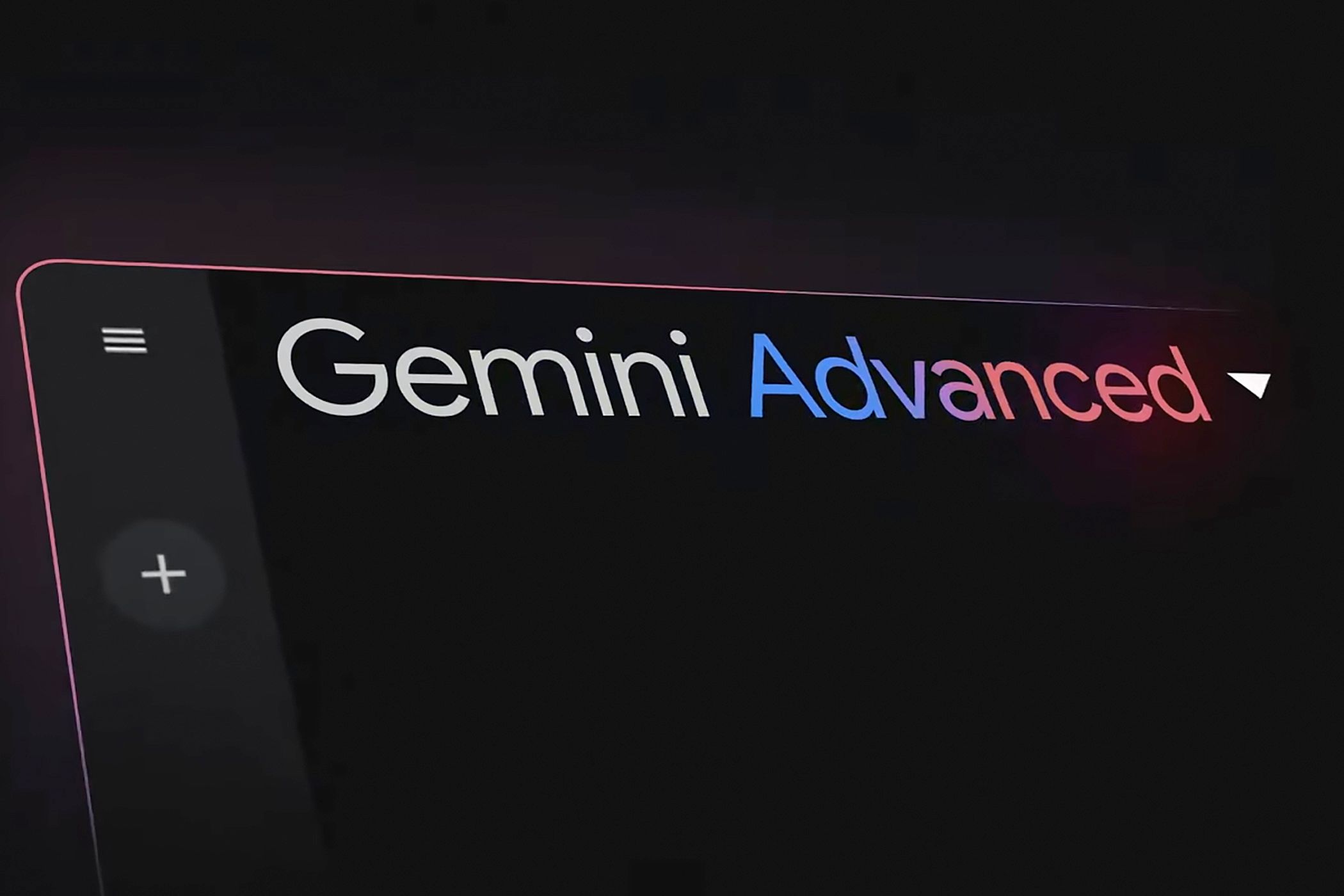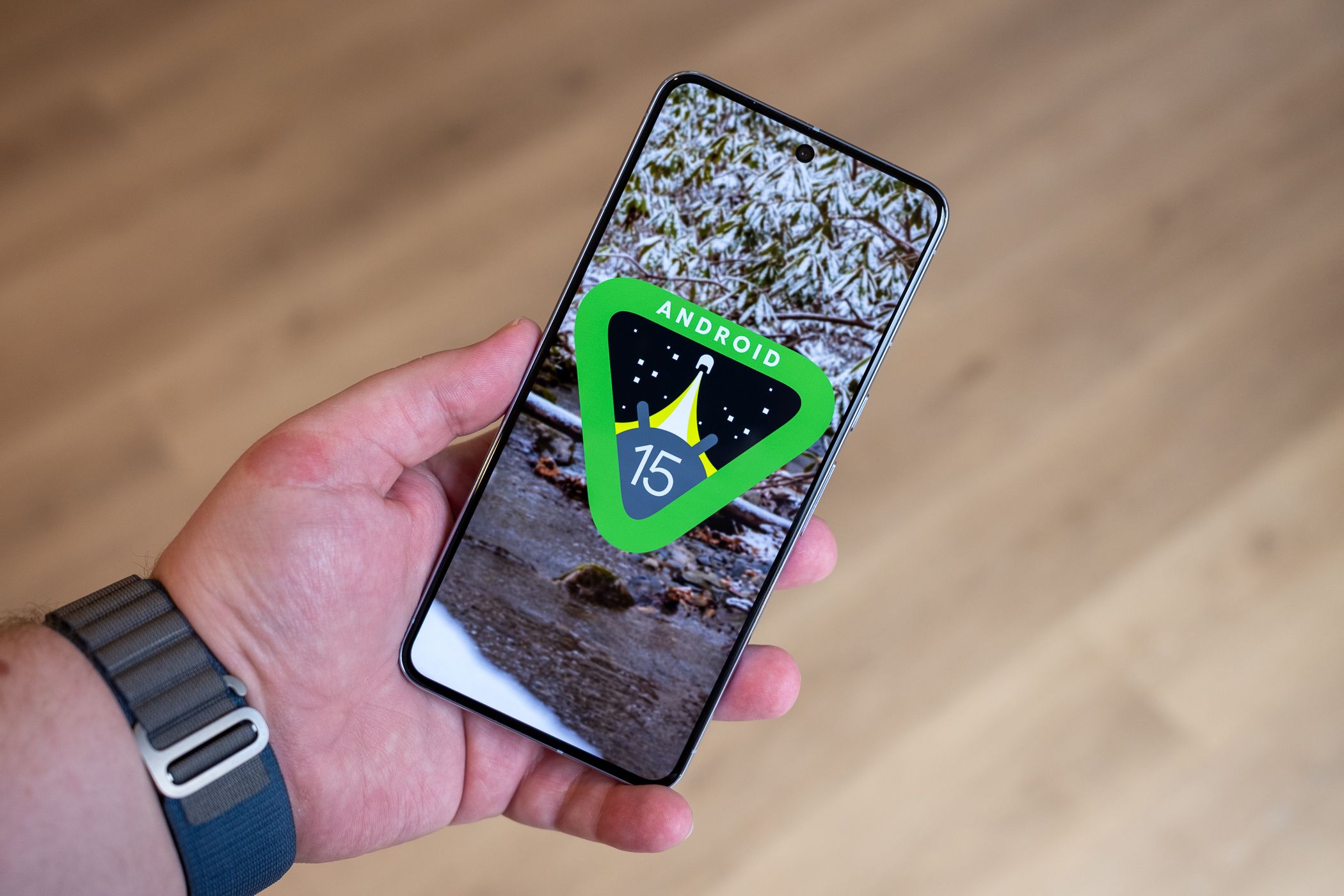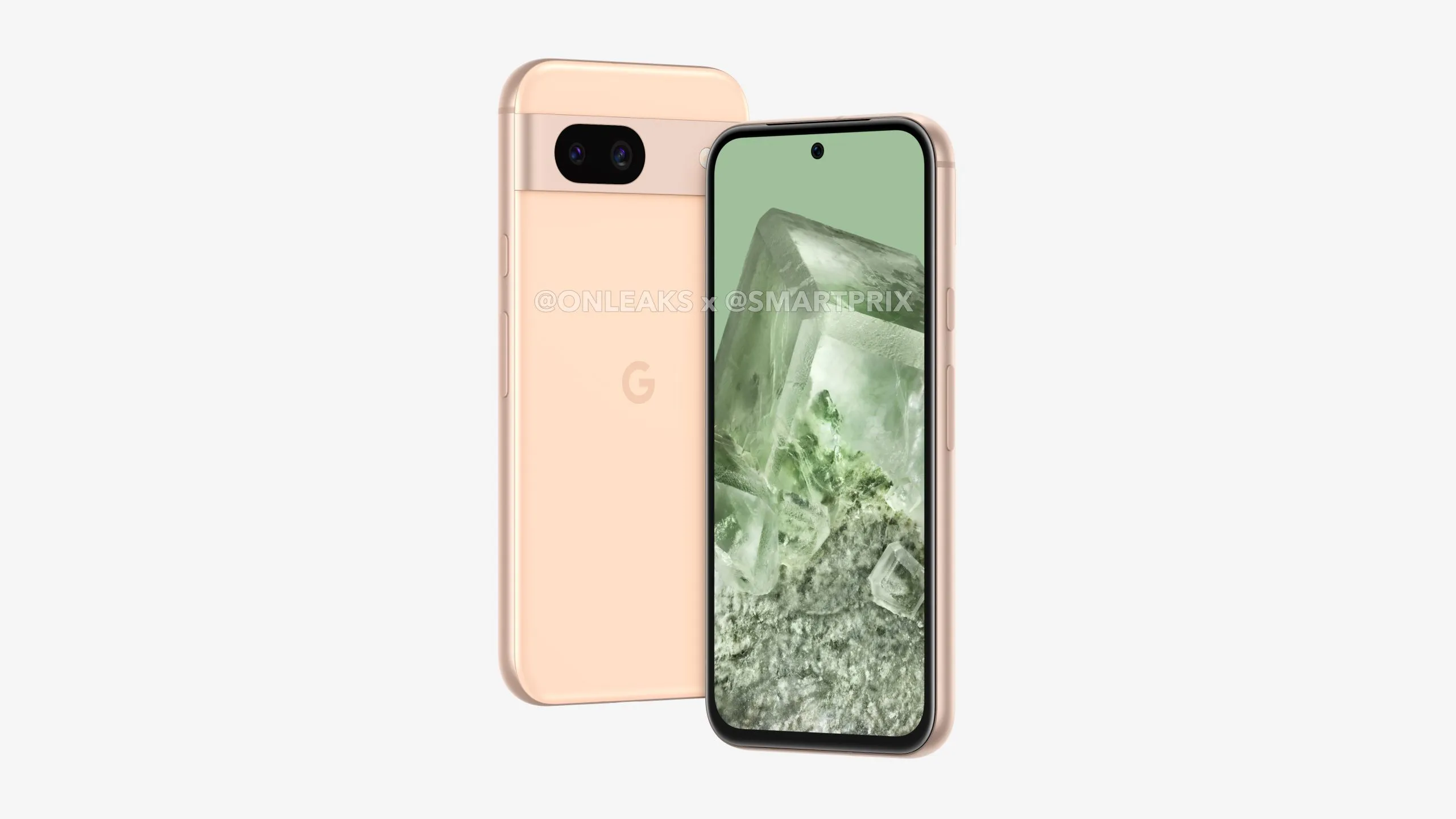What to Expect From Google I/O 2024
It's that time of year when the tech world awaits Google's yearly developer convention. The Shoreline Amphitheatre in Mountain View, California, readies itself to play host to yet another installment of Google I/O on May 14th, 2024. Here's what we're expecting from the event this year.
Gemini and AI Will Take Center Stage

At Google's highly anticipated I/O conference, all eyes will be on "Gemini"—the company's flagship AI model, formerly known as "Bard." Gemini has already made waves with its remarkable capabilities, but this year's event will most likely reveal its next evolution, setting new benchmarks for its AI performance.
However, Gemini's rise has not been without challenges. Its image generator faced backlash for producing historically inaccurate visuals like multi-racial Nazi depictions. Google promptly paused the feature, acknowledging the misstep and vowing to release an improved version, potentially at I/O.
The conference may shed more light on "Gemma," the lightweight open-source variant of Gemini aimed at responsible AI development. Google has already released Gemma's model weights (Gemma 2B and 7B) and a Responsible Generative AI Toolkit to support safe applications of this powerful technology.
Beyond Gemini, Google's vision for AI integration spans its entire product suite, from Messages to Maps and YouTube. The possibilities seem endless, and I/O could offer a tantalizing glimpse into this future.
One area of particular interest is Google's attempt to replace its long-standing Assistant with Gemini on Android. While the transition hasn't been seamless, with some features still lacking, anticipation runs high for Google to announce expanded Gemini capabilities, bringing its full power to our fingertips.
We’ll See More of Android 15 and a New Beta

Google will likely highlight the latest version of its operating system, Android 15, at Google I/O. The first developer preview released in mid-February teased some exciting features, but the real excitement is yet to come.
Under the hood, Android 15, codenamed "Vanilla Ice Cream" (because who doesn't love a tasty treat?), promises further refinements to the user interface, improved battery life, enhanced security measures, and a host of under-the-hood optimizations that will make the Android experience smoother and more efficient than ever before.
One of the most significant changes rumored to be part of Android 15 is the introduction of a "Private Space"—a secure, sandboxed environment within your device where you can store sensitive data, files, and apps, completely isolated from prying eyes.
Beyond these tantalizing morsels, whispers abound that Android 15 could finally bring satellite connectivity to select devices, enabling you to send out an SOS complete with your location when venturing off the beaten path and out of cellular range.
The first public beta of Android 15 is slated for April, so we'll likely see the second beta released during I/O. Developers are eager to really dig into a stable build, but if tradition continues, Android 15 will likely debut alongside the Pixel 9 series in October 2024, making for one delicious update.
The Pixel 8a Might Be the Only Hardware Unveiled

The mid-range Pixel A-series hasn't exactly been a stunner over the years, but it's consistently delivered a nice balance of performance and affordability. The upcoming Pixel 8A looks to continue that tradition, following in the footsteps of last year's Pixel 7a, which debuted at Google I/O.
Word on the street is the 8a may borrow some premium features from its pricier Pixel 8 sibling, making it an enticing option for those wanting flagship-level performance without the sky-high price tag.
One of the juicier rumors is that the 8A could rock a silky-smooth 120Hz OLED display with a scorching 1,400 nit peak HDR brightness. If true, that'd put it in the same league as some of the best mobile displays out there for vibrant colors and fluid visuals. Pair that with a sleek design inspired by the Pixel 8, and you may have a real head-turner aesthetically.
Under the hood, the Pixel 8a might run on Google's latest Tensor G3 chip—packing potent performance along with advanced AI smarts. Whether it's real-time translation, computational photography trickery, or something else, that Tensor silicon could unlock all sorts of cool new experiences. But here's where it gets fascinating—the 8a may offer DisplayPort output.
So far, it's looking like the Pixel 8a will be the only hardware we see at I/O. The Pixel 9 series, Pixel Watch 3, and Pixel Fold 2 will likely be reserved until the Fall.
How to Watch Google I/O 2024
Are you excited about what could be in store for I/O this year? If you didn't get a special invitation from Google to attend in person, don't worry! Like last year, you can watch the keynote livestream online on May 14th and catch up on any sessions you missed later on demand. The live broadcast and recorded videos will be available on the Google I/O website and Google's YouTube channel so that you can tune in from anywhere.
-
 Buy power banks and be wary of this marketing lieThe truth about mobile power capacity: the huge gap between advertising capacity and actual capacity The capacity advertised by mobile power manufact...Software tutorial Posted on 2025-04-15
Buy power banks and be wary of this marketing lieThe truth about mobile power capacity: the huge gap between advertising capacity and actual capacity The capacity advertised by mobile power manufact...Software tutorial Posted on 2025-04-15 -
 Solve the problem of startup stuck after Windows 11 KB5043145 updateThis guide offers solutions for resolving the Windows 11 startup freeze issue following the KB5043145 update. This frustrating problem, where Windows...Software tutorial Posted on 2025-04-15
Solve the problem of startup stuck after Windows 11 KB5043145 updateThis guide offers solutions for resolving the Windows 11 startup freeze issue following the KB5043145 update. This frustrating problem, where Windows...Software tutorial Posted on 2025-04-15 -
 Essential artifacts for organizing home furnishings: the best applications and gadgets清洁是一项永无止境的苦差事——新的灰尘和污垢潜伏在角落里,随时准备破坏您辛勤的成果。但是,即使您无法彻底摆脱家务,您也可以使用合适的应用程序和设备更快地整理房间。以下九款产品可以帮助您减少清洁时间,让您有更多时间去做其他事情。 Sortly 在开始擦洗之前,您需要整理散落在您家里的物品。一旦杂物不...Software tutorial Posted on 2025-04-15
Essential artifacts for organizing home furnishings: the best applications and gadgets清洁是一项永无止境的苦差事——新的灰尘和污垢潜伏在角落里,随时准备破坏您辛勤的成果。但是,即使您无法彻底摆脱家务,您也可以使用合适的应用程序和设备更快地整理房间。以下九款产品可以帮助您减少清洁时间,让您有更多时间去做其他事情。 Sortly 在开始擦洗之前,您需要整理散落在您家里的物品。一旦杂物不...Software tutorial Posted on 2025-04-15 -
 PCI简单通讯控制器驱动下载指南Troubleshooting the PCI Simple Communications Controller Driver: A Comprehensive Guide The PCI Simple Communications Controller driver is crucial for ...Software tutorial Posted on 2025-04-15
PCI简单通讯控制器驱动下载指南Troubleshooting the PCI Simple Communications Controller Driver: A Comprehensive Guide The PCI Simple Communications Controller driver is crucial for ...Software tutorial Posted on 2025-04-15 -
 All strategies for restoring unsaved OpenOffice documentsAre your OpenOffice files not saved due to unexpected circumstances such as a computer power outage? Is it possible to recover unsaved OpenOffice docu...Software tutorial Posted on 2025-04-15
All strategies for restoring unsaved OpenOffice documentsAre your OpenOffice files not saved due to unexpected circumstances such as a computer power outage? Is it possible to recover unsaved OpenOffice docu...Software tutorial Posted on 2025-04-15 -
 10 Amazon features you should use我几乎所有东西都在亚马逊上购买。虽然我尽量不去想这样做会加剧我们《机器人瓦力》式的未来,但这实在太方便了,按下按钮后两天就能收到货。如果你也有同感,那就来看看这10个你真的应该使用的亚马逊功能吧。 使用亚马逊当日送达安排送货 亚马逊的魅力之一就是能够在你想到需要某样东西的时候立即购买。这样,你就能...Software tutorial Posted on 2025-04-14
10 Amazon features you should use我几乎所有东西都在亚马逊上购买。虽然我尽量不去想这样做会加剧我们《机器人瓦力》式的未来,但这实在太方便了,按下按钮后两天就能收到货。如果你也有同感,那就来看看这10个你真的应该使用的亚马逊功能吧。 使用亚马逊当日送达安排送货 亚马逊的魅力之一就是能够在你想到需要某样东西的时候立即购买。这样,你就能...Software tutorial Posted on 2025-04-14 -
 Monster Hunter Wilderness PC communication error, quick solutionEncountering the Monster Hunter Wilds communication error S9052-TAD-W79J? This frustrating issue affects many players, but several solutions have pro...Software tutorial Posted on 2025-04-14
Monster Hunter Wilderness PC communication error, quick solutionEncountering the Monster Hunter Wilds communication error S9052-TAD-W79J? This frustrating issue affects many players, but several solutions have pro...Software tutorial Posted on 2025-04-14 -
 Easily transfer WhatsApp emojis to Signal and TelegramYou thought convincing your friends to swap WhatsApp for Telegram or Signal would be the hardest thing about switching messaging apps. But the...Software tutorial Posted on 2025-04-14
Easily transfer WhatsApp emojis to Signal and TelegramYou thought convincing your friends to swap WhatsApp for Telegram or Signal would be the hardest thing about switching messaging apps. But the...Software tutorial Posted on 2025-04-14 -
 7 macOS features make me abandon Windows 11 laptopAfter years of using Windows 11, I never imagined I'd make the switch. However, macOS offers several thoughtful features that have made a noticeab...Software tutorial Posted on 2025-04-14
7 macOS features make me abandon Windows 11 laptopAfter years of using Windows 11, I never imagined I'd make the switch. However, macOS offers several thoughtful features that have made a noticeab...Software tutorial Posted on 2025-04-14 -
 New iOS 12 features are available to improve your iPhone experienceiOS 12:iPhone操作系统最新版本带来的七大改进 我们六月首次获悉iPhone操作系统的最新版本iOS 12。本周,苹果公司的新更新将开始向兼容设备(包括iPhone 5C及之后发布的所有机型)推出。 除了性能提升外,该软件还带来了许多酷炫的新功能。为了帮助您充分利用这些扩展功能,我们对iO...Software tutorial Posted on 2025-04-14
New iOS 12 features are available to improve your iPhone experienceiOS 12:iPhone操作系统最新版本带来的七大改进 我们六月首次获悉iPhone操作系统的最新版本iOS 12。本周,苹果公司的新更新将开始向兼容设备(包括iPhone 5C及之后发布的所有机型)推出。 除了性能提升外,该软件还带来了许多酷炫的新功能。为了帮助您充分利用这些扩展功能,我们对iO...Software tutorial Posted on 2025-04-14 -
 Indoor bonfire and 9 smart lighting tips, dynamic experienceUnlock the Full Potential of Your Smart Lights: 11 Clever Hacks to Try! You've invested in smart lights – now let's go beyond simple on/off co...Software tutorial Posted on 2025-04-13
Indoor bonfire and 9 smart lighting tips, dynamic experienceUnlock the Full Potential of Your Smart Lights: 11 Clever Hacks to Try! You've invested in smart lights – now let's go beyond simple on/off co...Software tutorial Posted on 2025-04-13 -
 Effective way to solve Abiotic Factor startup crashI believe you must have played Abiotic Factor if you are a game fan. Have you ever been unable to play it because of a game crash? If you have and don...Software tutorial Posted on 2025-04-13
Effective way to solve Abiotic Factor startup crashI believe you must have played Abiotic Factor if you are a game fan. Have you ever been unable to play it because of a game crash? If you have and don...Software tutorial Posted on 2025-04-13 -
 How to completely remove Yahoo redirect virus on Mac?Is your Mac's web browser redirecting you to Yahoo, regardless of your chosen browser or search engine? This indicates a likely browser hijacker ...Software tutorial Posted on 2025-04-13
How to completely remove Yahoo redirect virus on Mac?Is your Mac's web browser redirecting you to Yahoo, regardless of your chosen browser or search engine? This indicates a likely browser hijacker ...Software tutorial Posted on 2025-04-13 -
 Mac Big Sur cleans hard disk space: How to delete clearable space? 【Internal and external storage】macOS Big Sur Space Cleaning Guide: Freeing Clearable Space Insufficient disk space of macOS Big Sur is a common problem, which can affect device perf...Software tutorial Posted on 2025-04-13
Mac Big Sur cleans hard disk space: How to delete clearable space? 【Internal and external storage】macOS Big Sur Space Cleaning Guide: Freeing Clearable Space Insufficient disk space of macOS Big Sur is a common problem, which can affect device perf...Software tutorial Posted on 2025-04-13
Study Chinese
- 1 How do you say "walk" in Chinese? 走路 Chinese pronunciation, 走路 Chinese learning
- 2 How do you say "take a plane" in Chinese? 坐飞机 Chinese pronunciation, 坐飞机 Chinese learning
- 3 How do you say "take a train" in Chinese? 坐火车 Chinese pronunciation, 坐火车 Chinese learning
- 4 How do you say "take a bus" in Chinese? 坐车 Chinese pronunciation, 坐车 Chinese learning
- 5 How to say drive in Chinese? 开车 Chinese pronunciation, 开车 Chinese learning
- 6 How do you say swimming in Chinese? 游泳 Chinese pronunciation, 游泳 Chinese learning
- 7 How do you say ride a bicycle in Chinese? 骑自行车 Chinese pronunciation, 骑自行车 Chinese learning
- 8 How do you say hello in Chinese? 你好Chinese pronunciation, 你好Chinese learning
- 9 How do you say thank you in Chinese? 谢谢Chinese pronunciation, 谢谢Chinese learning
- 10 How to say goodbye in Chinese? 再见Chinese pronunciation, 再见Chinese learning

























